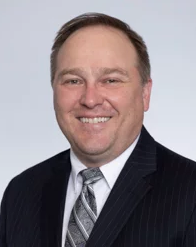Kamin: Legislature Mulls Presumption Bills
Thursday, March 3, 2022 | 0
California state lawmakers are currently considering two bills that would create a broad presumption for hospital employees and extend Senate Bill 1159’s COVID-19 presumptions.

John P. Kamin
Senate Bill 213 would create a presumption for hospital employees, and Assembly Bill 1751 would extend the COVID-19 outbreak- and first-responder presumptions to Jan. 1, 2025.
The Senate approved SB 213 on Jan. 31 and sent it to the Assembly, where lawmakers will consider approving the proposal as it makes its way through the committee process. The bill, which was introduced by Sen. Dan Cortese, D-San Jose, would create a broad presumption for infectious diseases including COVID-19, cancer, musculoskeletal injuries, post-traumatic stress disorder and respiratory diseases.
The biggest question most of our clients have had is, who would this bill apply to? The answer is hospital employees in an acute care hospital who provide direct patient care.
Acute care hospitals are specifically defined in sections (a) and (b) of the Health and Safety Code Section 1250.
From my perspective, this bill appears to be overreaching, as many hospital providers are already taking a proactive approach to workers’ compensation claims. Why? They have high-paid employees and need to keep them happy. Health care is a high-risk business, and frivolous denial of claims is neither in the hospitals’ best interests or their employees’ best interests.
Health care workers already do have a resumption, as well. LC 3208.05 already provides a presumption of injury for health care workers due to preventative care.
The LC 3208.05 presumption of compensability may be triggered if a health care worker suffers an injury while undergoing care to prevent the development or manifestation of any bloodborne disease, illness, syndrome or condition recognized as occupationally incurred by Cal/OSHA, the federal Centers for Disease Control and Prevention or other appropriate governmental entities.
For instance, LC 3208.05 lists hepatitis and HIV as examples of bloodborne diseases. However, LC 3208.05 also states that it is not limited to hepatitis and HIV. It is widely accepted in the medical community that COVID-19 is not a bloodborne disease.
SB 213 still must receive approval from the Assembly and Gov. Gavin Newsom before it becomes law, so it has a long way to go. The fact that the Senate approved it with only a 21-9 vote shows that there is some opposition to the bill.
Extension of SB 1159
Assemblyman Tom Daly, D-Anaheim, introduced Assembly Bill 1751, which would extend SB 1159’s COVID-19 presumptions. Why did he create this bill? SB 1159 has an expiration date of Jan. 1, 2023, which means that its first responder and outbreak presumptions would expire at the end of this year.
AB 1751 is currently at the Assembly Insurance Committee and has a long way to go before being approved. However, it’s also worth noting that Daly is the chairman of the committee, and he does tend to have his finger on the pulse of most workers’ compensation legislation. Therefore, this bill has a higher probability of passage than others simply because Daly is the one who introduced it.
In conclusion, it’s still early in the California legislative session. Expect to see more action on these bills as they go through committee meetings in the next three months.
Some had wondered if the promotion of SB 213 meant that lawmakers are considering letting SB 1159’s presumptions expire, and that option still does technically exist at this time. However, the expiration of SB 1159’s presumptions does appear more unlikely in lieu of Daly’s bill.
John P. Kamin is a workers’ compensation defense attorney and partner at Bradford & Barthel’s Woodland Hills location. He is WorkCompCentral's former legal editor. This entry from Bradford & Barthel's blog appears with permission.





Comments